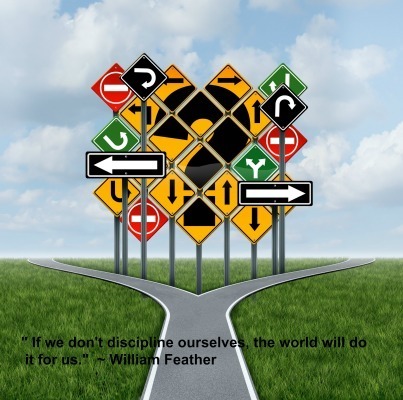Jennifer Touma's Blog, page 4
April 10, 2015
How Mental Toughness Fosters Emotional Intelligence
My skills in martial arts saved my life when I was confronted by a stranger in an elevator. My training in situational awareness, self-control, the martial arts way of emotional intelligence, and mental toughness prevented me from looking or acting like a victim. My demeanor and attitude made the attacker think twice. As a martial artist, it is vitally important to be physically sharp and mentally alert, and utilize whatever martial arts technique necessary to survive a life or death struggle.
Since that fateful day, my martial arts training has helped me develop a successful business, a fulfilling life, and an offensive spirit, one prepared not only for situations that I expect, but also for unexpected turns of events.
Although your personal safety may never mirror the challenge I encountered, I want you, too, to be prepared not only for situations that you expect, but also for unexpected turns of events. You can achieve this by developing emotional intelligence through mental toughness.
![iStock_000002116286Medium[1]](https://i.gr-assets.com/images/S/compressed.photo.goodreads.com/hostedimages/1458844413i/18538626.jpg) Here are three mindsets used by black belt martial artists to develop the kind of emotional intelligence that keeps them mentally strong:
Here are three mindsets used by black belt martial artists to develop the kind of emotional intelligence that keeps them mentally strong:
1. Mentally strong people have an awareness of self. They know how to manage their internal state of mind, regulate emotions, and conduct themselves in a positive manner, regardless of circumstance, the situation, or the emotional sway of others.
When you find yourself faced with a conflict, situation, or circumstance, quickly size it up and delay acting on impulse. Controlling such emotions as fear or anger gives you time to think and respond deliberately, decisively, and confidently.
Avoid becoming a victim of the situation, circumstance, or other psychological controls that place you in a disempowered state of mind. The first step in controlling emotions and effective thinking is emotional self-awareness.
2. Mentally strong people know that the challenge in business is to have consistency in ‘who you are’, from personal branding and authenticity, to following your gut.
What makes this so challenging is that no one else can tell you who you really are. We have many assumptions of who we are and who we want to be as we are constantly evolving, negotiating how we want others to see us.
By summoning such mental strengths as persistence, resilience, and emotional intelligence, we can identify and manage emotions in a positive way. The more you like yourself, know your core strengths, understand the values that are important to you, know how your moral compass drives you toward success and what influences your failures, you’ll have a more accurate perception of the real “you” that is constantly evolving.
3. Mentally strong people are disciplined. They take charge of themselves, are responsible for their life choices and consequences, and are their own person. Self-discipline means responding appropriately to what you are thinking in the moment rather than what you are feeling.
In a world of choices and potential influences, we can often forget to remain grounded by thinking first to ‘look within ourselves’. But doing so summons the inner strengths necessary to cope with the demands of life as they arise.
Self-discipline depends on what you expect from yourself. Self-expectation enables you to direct your mind to function at a higher level. A higher expectation promotes improved self-esteem, higher self-worth, and transforms desires into action. Conversely, low expectations foster compromises and poor self-image and tells your mind to function at a low capacity.
Copyright 2015 Jennifer Touma Mindscape
[New Post] How Mental Toughness Fosters Emotional Intelligence
My skills in martial arts saved my life when I was confronted by a stranger in an elevator. My training in situational awareness, self-control, the martial arts way of emotional intelligence, and mental toughness prevented me from looking or acting like a victim. My demeanor and attitude made the attacker think twice. As a martial artist, it is vitally important to be physically sharp and mentally alert, and utilize whatever martial arts technique necessary to survive a life or death struggle.
Since that fateful day, my martial arts training has helped me develop a successful business, a fulfilling life, and an offensive spirit, one prepared not only for situations that I expect, but also for unexpected turns of events.
Although your personal safety may never mirror the challenge I encountered, I want you, too, to be prepared not only for situations that you expect, but also for unexpected turns of events. You can achieve this by developing emotional intelligence through mental toughness.
Here are three mindsets used by black belt martial artists to develop the kind of emotional intelligence that keeps them mentally strong:
1. Mentally strong people have an awareness of self. They know how to manage their internal state of mind, regulate emotions, and conduct themselves in a positive manner, regardless of circumstance, the situation, or the emotional sway of others.
When you find yourself faced with a conflict, situation, or circumstance, quickly size it up and delay acting on impulse. Controlling such emotions as fear or anger gives you time to think and respond deliberately, decisively, and confidently.
Avoid becoming a victim of the situation, circumstance, or other psychological controls that place you in a disempowered state of mind. The first step in controlling emotions and effective thinking is emotional self-awareness.
2. Mentally strong people know that the challenge in business is to have consistency in ‘who you are’, from personal branding and authenticity, to following your gut.
What makes this so challenging is that no one else can tell you who you really are. We have many assumptions of who we are and who we want to be as we are constantly evolving, negotiating how we want others to see us.
By summoning such mental strengths as persistence, resilience, and emotional intelligence, we can identify and manage emotions in a positive way. The more you like yourself, know your core strengths, understand the values that are important to you, know how your moral compass drives you toward success and what influences your failures, you’ll have a more accurate perception of the real “you” that is constantly evolving.
3. Mentally strong people are disciplined. They take charge of themselves, are responsible for their life choices and consequences, and are their own person. Self-discipline means responding appropriately to what you are thinking in the moment rather than what you are feeling.
In a world of choices and potential influences, we can often forget to remain grounded by thinking first to ‘look within ourselves’. But doing so summons the inner strengths necessary to cope with the demands of life as they arise.
Self-discipline depends on what you expect from yourself. Self-expectation enables you to direct your mind to function at a higher level. A higher expectation promotes improved self-esteem, higher self-worth, and transforms desires into action. Conversely, low expectations foster compromises and poor self-image and tells your mind to function at a low capacity.
Copyright 2015 Jennifer Touma Mindscape
March 16, 2015
[New Post] Effective Ways to Deal with Bullying Bosses
[image error]The bully you knew in grade school often grows up to become the office bully, possibly your boss or coworker. There are effective strategies for handling bullying bosses.
By definition, “workplace bullying” is the repeated, health-harming mistreatment of an employee in the form of verbal abuse or behaviors that are threatening, intimidating, or humiliating.
Bullies practice psychological violence by unleashing verbal aggression through yelling, swearing, or making negative comments. They withhold vital information, steal credit for other’s work, spread malicious rumors, socially exclude their victims, and humiliate victims in front of others.
According to a poll conducted by Employment Law Alliance, Philadelphia-based Reed Group surveyed 1,000 American adults on the topic of workplace bullying.
• 45% said they have worked for a supervisor or employer they consider abusive.
• More than 50% of American workers have been the victim of, or heard about, supervisors/employers behaving abusively.
• Southern workers (34%) are less likely to experience an abusive boss than are their Northeastern (56%) and Midwestern (48%) counterparts.
• 64% believe an abused worker has the right to sue for damages.
Who are the Bully Bosses?
Bullies have a strong desire to be in control and exert dominance. According to organizational psychologist Laurence Stybel, Ph.D., of Boston’s Stybel Peabody Lincolnshire & Associates, there are two kinds of bullies. Unsuccessful ones who don’t last long at companies, and successful ones who are competent, but create problems.
Some bullies operate under the radar undetected because they project such traits as being intelligent, hard working, self-confident, competitive, and independent. Such traits may fill the job description, but they are devoid of empathy and compassion.
Are you working for a tough boss or workplace bully?
A tough boss treats all employees fairly, sets high expectations, and holds employees accountable. If the employee has a problem, a tough boss works with them to overcome barriers and engage in constructive dialogue.
A bully acts with malice and carefully chooses his victims. He creates roadblocks to derail success. His misuse of power and authority is relentless. Bullies are self-centered, emotionally restless, subjective, and focused totally on their own needs.
Bullied employees quickly become mentally and emotionally exhausted. This leads to physical illness, high absenteeism, loss of self-confidence, feelings of depression, social isolation, increased anxiety, sleepless nights and high employee turnover.
Use these seven effective ways to handle bullying bosses:
Tip #1 Verbal self-defense
Don’t let the bully’s abusive words rattle you. Respond calmly and unemotionally. Make eye contact and declare with a firm voice, “Your tone is unacceptable and I won’t tolerate it.” Restrict your statement to the present situation. Confront the bully in private because bullies never back down in public or apologize.
Tip #2 Build and project self-confidence.
Gain self-confidence by facing adversity and meeting challenges. Project this self-confidence through strong body language, high quality work, measured tone of voice and a firm hand shake when dealing with others.
Tip #3 Document everything.
Keep a detailed journal of your interactions, what happened and when, what was said, and any witness statements. You’ll need this information to report the bully to HR or legal authorities. Keep your journal and notes at home and do not create these or store them on the company computer.
Tip # 4 Seek help.
Any employee has the right to take swift action to protect themselves from bullying. Realize loyal coworkers may distance themselves to protect their jobs.
Don’t handle your bullying situation alone. Seek the assistance of a mentor, coach, or legal advocate who specializes in unfair workplace behavior.
Going to HR is a good start. What should you do before you approach HR?
• Support your complaint with documented evidence.
• Get legal advice to know your rights and options.
• Familiarize yourself with your company’s employee welfare policy on bullying.
• Ask your HR representative what you can expect from them and if your conversations are confidential.
• Determine whether others who have approached HR have been labeled complainers or a liability.
If you do nothing, be mentally prepared for more of the same, forcing you to quit your job or be asked to leave as your work quality slips.
Tip # 5 Be psychologically and emotionally prepared.
Not many people like to confront the person they are reporting. Mental toughness will help you feel in control of your emotions and life, you respond proactively to challenges, and act with confidence, calmness and resolve. Being mentally tough will help you to withstand the stress and pressure of the process.
Tip #6 Develop a strong, disciplined mind.
Become more inner directed and self reliant. Pay attention to what you are thinking and feeling. Train your mind to be alert by staying in the present moment. When your mind is strong and disciplined, it enables you to face the bully head on rather than giving the bully permission to control you.
Tip #7 Don’t expect to change the bully.
You have no control over a bully’s behavior or attitude. Your best option is to manage the situation and shield yourself emotionally, psychologically and legally. It’s the company’s responsibility to protect the welfare of its employees’ from all types of workplace behavior and harm, including bullying.
© Copyright 2015 Jennifer Touma and Earnest Hart Jr.
February 23, 2015
[New Post] The Greatest Secret You Can Learn About Abundance
 When my public relations consultant, Robin Samora, brought the following Abraham Hicks quote to my attention, it provided a wonderful moment of awareness as I prepare for my workshops and speaking engagements regarding Mental Toughness.
When my public relations consultant, Robin Samora, brought the following Abraham Hicks quote to my attention, it provided a wonderful moment of awareness as I prepare for my workshops and speaking engagements regarding Mental Toughness.
How often had I, as a young woman searching to find her way in the competitive world of business, labored under the mistaken notion that hard work and struggle would guarantee success.
As I review my personal and professional achievements, I see that the financial well-being and abundance I had always been seeking came about simultaneously when I finally recognized this essential truth: developing an inner core of strength that aligned my thoughts, emotions and beliefs enabled me to achieve everything I was after with ease.
You and I as individuals are the only ones capable of choosing the thoughts we want to entertain.
Why not consistently choose feel-good, empowered thoughts promoting positive expectation!
“Many people are approaching life from the flawed premise that if they work hard and struggle long and pay a big enough price, they will then be rewarded with financial well-being.
And since they do not realize that in their struggle they are denying themselves alignment with the abundance they seek, when the abundance does not come, they attribute it to luck or favoritism that is being directed away from them and toward another.
But there is no luck or favoritism. There is only allowing or resisting, letting in or keeping out the abundance that you deserve.
As you gradually train your own thoughts into those of positive expectation, as you align with thoughts of worthiness and Well-Being, as you align with your true power by seeking good-feeling thoughts—you will no longer offer resistance to your own abundance. And when your resistance stops, your abundance will come. A flood of good-feeling ideas and possibilities will flow to you.
Opportunities and propositions will be plentiful. And soon you will stand in knowing amusement that all of this was always there within your reach, but in your resistant state of attraction, you were not yet able to experience it . . . but then, it came—not because of your struggle but because of your ease.”
—Abraham
Excerpted from the workshop: Getting into the Vortex Guided Meditation CD and User Guide on November 01, 2010
Copyright © 2015 Jennifer Touma Mindscape
February 12, 2015
[New Post] 7 Habits of People with Remarkable Mental Toughness
Men and women who are mentally tough prime themselves for long-term success. Mental toughness is the ability to manage your emotions, thinking and mindset despite prevailing circumstances.
If you want to learn more about building mental toughness, then you’ll enjoy reading the 7 Habits of People with Remarkable Mental Toughness by Jeff Haden, contributing editor of Inc. Magazine Online
How many times did you come close to your breakthrough moment only to turn back because you feared what could be possible for you?
Here’s to your success and personal freedom,
Jennifer
January 29, 2015
[New Post] Four Critical Mental Toughness Markers for Leaders
What do business leaders need to effectively compete and succeed in today’s uncertain business environment?
Today’s business leaders need more than leadership skills, critical thinking, and the ability to influence and keep their team motivated. Successful business leaders need to have the same mental readiness and psychological toughness as the most dedicated athlete. It’s the most valuable tool used in any life decision, in or out of the boardroom.
The Mental Toughness approach is the one overriding psychological asset that individuals, leaders and organizations depend on to carry them through critical moments of performance. It is the one attribute needed in today’s workplace to improve the productivity and quality of leadership, make the most of present opportunities, and creating opportunity where none exists.
What is Mental Toughness?
Mental Toughness is the ability to manage emotions, thoughts and actions, and how an individual responds to stressors, challenges and pressure regardless of prevailing circumstances.
Mental toughness is a learned skill, developed through experiences, deliberateness of purpose, and awareness. This learned skill is fast becoming the competitive edge for athletes, business professionals, and in life in general today.
Leadership Performance
Today’s leaders have taken a brutal pounding in the marketplace due to its rising complexity over the last few years. Even those who are succeeding are experiencing emotional and psychological exhaustion.
But what makes one leader highly effective and another average, given the same situation?
Leaders today cannot rely only on their knowledge, skills and past successes to traverse through today’s business paradigm of constant changeovers.
They must draw on psychological preparedness, a toughness that gets them through when they feel they are close to folding under the pressure. This toughness pushes them through hard “bumps in the road”, responding decisively and confidently to sudden, unforeseen challenges. Toughness helps leaders outperform competitors by remaining consistently focused, confident, and in emotional control.
Steve Bergholtz, senior facilities consultant for AmSan Division of Interline Brands in Danvers, MA, says, “The only control you have is how you respond to the situation or challenge, so respond with a positive mindset.”
As businesses look to their future, they need to prepare their most game-ready leaders to have “deep smarts” – insight based on know-how and mental toughness.
Four Critical Mental Toughness Markers for Leaders
Dr. Peter Clough, Head of Applied Psychology at University of Hull, is the foremost authority on mental toughness. As you peruse each of my expanded versions of Dr. Clough’s definitions of four critical mental toughness markers, ask yourself, “Am I mentally tough enough?”
1. Control.
Identifies the extent to which an individual feels in control of their life and emotions .
Game-ready leaders feel in control of their life and their emotions. They keep anxieties in check and are less likely to reveal their emotional state to others. They manage themselves by taking charge of self, so that the situation, circumstances, and others don’t.
A lack of self-control allows unrestrained behavioral practices to take control of life, resulting in ‘crashing’ under job stresses, manifesting erratic behaviors, sudden emotional outbursts, dramatic mood swings, workplace bullying. What results are career derailments and self-sabotaging behaviors.
Mental Toughness Tip for Self-Control
Ease stress by coping with problems directly and quickly rather than allowing them to control emotions, behaviors and health.
2. Challenge.
Identifies the extent to which people see challenges, variety and problems as opportunities or as threats. Game-ready leaders see challenges and problems as opportunities and actively embrace them. They learn how to thrive within the constant flux in the business environment.
Leaders readily “rise to the occasion” in their hiring practices, managing a diverse generational workforce from millennials’ to baby boomers.
By contrast, not applying mental toughness contributes to a lack of preparation to deal with the ‘unexpected’, leading to deliberately ignoring crisis situations.
The most daunting of all challenges is facing fear, based on real or imagined threats. Leaders who feel fear are apprehensive of the unknown and the lack of control it represents. Leaders may fear making the wrong decision, giving performance feedback to an employee, or leading a meeting of peers. Organizations may fear budget cuts, reorganization, or a lack of resources to meet the needs of employees and customers.
As a result, leaders hesitate to pursue relationships, invest in business opportunities, and follow through on visions and goals.
Game-ready leaders know that fortunes are made when people take chances. Remarkable achievements come through acts of courage. Speculative risks gain windfalls from a leap of faith.
Game-ready leaders know “The only thing we have to fear is fear itself,” words first spoken by Franklin Delano Roosevelt.
Mental Toughness Tip to Face Challenge
At the first sign of emotional pressure, ask yourself, “Am I allowing events, challenges or circumstances to control how I emotionally respond?”
3. Commitment.
Identifies the extent to which someone commits to delivering what has been promised .
Game-ready leaders have an unwavering emotional and intellectual commitment to delivering what has been promised. Commitment represents the stick-ability to carry out a task in the face of difficulties or setbacks. Commitment means persisting to achieve business and personal goals. Game-ready leaders build trusting relationships to inspire commitment, even though commitment makes us vulnerable to rejection and failure.
Mental Toughness Tip to Enhance Commitment
Connect work with meaning, combining the rational and emotional commitment of leaders and employees in ways that lead to extraordinary effort.
4. Confidence.
Identifies the extent to which people have self-belief in their abilities and the confidence to deal with setbacks and challenge.
Game-ready leaders gain confidence from achievement. They internalize a strong set of ethics, engage in effective self-management of emotions and behavior, and express principles of right conduct.
Confidence is thinking what one can do now, in the moment. By evaluating past accomplishments and experiences as successful, confidence increases. Confidence is standing up to complex challenges that lack the simple black-and-white answers. Confidence helps in coping with counterproductive emotions and thoughts.
Not applying mental toughness erodes a leader’s confidence because they play the game of business and life so as not to lose. They deliberately move away from what they want, avoid taking calculating risks or accepting new tasks, making ‘because’ excuses, and fearing success.
Game-ready leaders remain confident no matter the time or circumstances.
Mental Toughness Tip to Build Confidence
Persistent pursuit of setting realistic and balanced goals.
Question: What could happen in your life and career if you could push through the hard situations when you might otherwise feel like folding under pressure? Share your answer in the comment section.
Copyright 2015 Jennifer Touma Mindscape
January 20, 2015
[Guest Article] Relationship Keys for Branding, Networking and Leadership on Twitter
Twitter is all about relationship building. It’s about building your market, creating that “know, like, and trust“ feeling and developing a community network, so that when you do have your products and services, you have people that are invested in you. This is truly relationship marketing and not a quick fix … they purchase ‘stuff’ and then they are gone.
So, if you are going to design it, you need to build it up for the long run, and grow a long term clientele. It is important to develop strategies to achieve your goals. The days of 2 – 6 touches are long gone. That strategy simply doesn’t work. It now takes about 20 impressions or more to create that buying decision. Also, remember not everyone will buy from you.
The most successful way to build relationships on Twitter is to be an effective tweeter. The best ways I’ve discovered can be expressed by envisioning each of your tweets to contain at least one of the following elements, the 4E’s: Entertain, Educate, Enhance and Engage on Twitter. Look for opportunities to impact people’s lives. It’s never crowded along the extra mile. It’s not about you, so Ditch the Pitch.
So, why is Twitter the ideal platform?
The reason I love Twitter over all the other social networking is because there are NO Gatekeepers – you can follow anyone you like, have a conversation with anyone who is willing to chat back with you. Deepak, Neale Donald Walsch, T Harv and Richard Bach – all reached out to me from messages I shared. Not trying to impress you – but rather impress upon you that thought leaders, authors, speakers, celebs are more easily accessible on Twitter than anywhere else. Who would you like to Tweet with? The Twitterverse is waiting for you.
Also, other sites have the permission system, which reminds us of some of those exclusive clubs where you were vetted, inspected, dissected and eventually neglected, not Twitter.
On Twitter there is no opt in or friend request to gather their information to send them an email or another offer. On Twitter there are massive opportunities to create connections with your growing audience, and expand the relationship to a phone or Skype call or in person meeting.
Importantly, before you start on Twitter keeping a consistent brand is vital. It is critical that your profile is complete. The profile is the Twitter version of your business card. When someone clicks on your tweet in their tweet stream it will immediately take them to your Twitter page. Your profile is the 1st thing they will see. Research has shown that within 4 to 10 seconds that visitor will decide if they will stay or go.
In that short time you need to convey who you are, what you do, why you’re an expert, and what do you want them to do next or where can they find out more about you.
You wear a nametag when you go to networking events. Your profile is your name tag or business card, and creates an opportunity for people to ask or comment on your profile. Your profile is indexable by the search engine, and should contain the same key words you’ve chosen for you website. Remember, you only get 160 characters in your profile to share your services or passions.
What is a great advantage of Twitter?
Every person is the Gatekeeper for everybody they know. There are countless conversations going on at the same time, and the same is true in your Twitterverse. Of the large number of followers you will attract only a small percentage of those will be reaching out or engaging with you. Focus on connecting with those people already showing some interest in you.
Always remember that everyone we meet is the Gatekeeper for everyone they know.
Twitter has been around for a while now and there are probably already several thought leaders in every niche imaginable. Searching in Twitter will help you locate those people who already have an audience of people you share your interests or may eventually be interested in what services you have to offer. Engaging & Retweeting these leaders and the most active people in those conversations will help establish you, as someone to take notice of.
It is very important to realize that making money or selling to people should not be your primary purpose. The main component of social media and networking is being social, creating relationships that can turn followers into fans into brand ambassadors into referring or joint partners and customers.
Spend the time to build a relationship and develop a community. Have a safe place for people to come. If they buy from you one time, there is probably a good chance they will continue to buy from you, as long as you come from a place of service and help them solve their problems.
Learn the 4 E’s of Effective Tweeting: bit.ly/GARY4Es
© Copyright 2015 Gary Loper
January 6, 2015
[New Post] Three Ways to Keep Fear from Taking You Hostage
—Guillaume Apollinaire, avant-garde French poet wrote
“Come to the edge, He said. They said: We are afraid. Come to the edge, He said. They came, He pushed them, And they flew.”
How many times did you come close to your breakthrough moment only to turn back because you feared what could be possible for you?
Fear is a natural human emotion. We fear physical pain and avoid it. We fear the unknown and the lack of control it represents. We fear commitment, because it makes us vulnerable to rejection and failure. But in the end we often discover that our worst enemy is fear itself.
So we hesitate…in pursuing relationships…investing in business opportunities…and following through on visions and goals.
Except we know that fortunes are made when people chance it. Remarkable achievements come through acts of courage. And speculative risks gain windfalls from a leap of faith.
But how do you decide when to act or hold off? How do you know if your hesitation is because of fear or instinct? Where’s the line between courage and foolhardiness?
It begins with the realization that courage is not the absence of fear, but the determination to press on in spite of it. A vision backed by a well thought-out strategy and plan of action. Still, unless you act, nothing happens. So there’s a point of hesitation…a moment of resolution that hangs in the balance.
Although fear is often along for the ride, it need not drive your decisions. But how do you know whether to take a leap of faith or not? The answer is you can’t. Not completely anyway, because every risk carries a degree of uncertainty. But there are rules of thumb that will help.
So let’s consider three possibilities to keep fear from taking you hostage.
1. The fear is causing distraction, making focus difficult.
Distraction can take many disguises. The disguises may be self-talk that rattle your confidence with negative thoughts and cause emotional chaos, or something or someone prevents you from giving your full attention.
Take charge of the distraction, be focused on a single-defined purpose to achieve your desired result. This is your greatest asset in business and in life. Ask yourself two important questions: What are you paying attention to? What are the qualities of your attention?
There are two directions to focus your attention: outward and inward.
Outward attention is the attention on the keynote speaker, the golfer’s focus on the ball for a putt on the green, or giving your colleague full attention during a meeting.
Inward attention is where you go inside your head to think, strategize, visualize, and plan. This also is where you become aware of the quality of your state of mind, your self-talk, thoughts and feelings of self-assurance, anxiety, and joy.
2. The fear is due to a lack of tangible resources.
You have the will to succeed, but you are not fully committed to it, so you hesitate. In this case, you may need to increase your skills and abilities, refinance a loan, or strengthen an uncertain variable. Ask yourself if your fear is rooted in something that is reasonable or unreasonable? Is it immobilizing you to a point that it’s overpowering your desire? Do you require more experience or knowledge in a certain area to gain confidence that you will achieve the results you want?
3. The fear is coming from an intangible place.
You have a gut feeling that makes you uneasy although you can’t identify it exactly. As a general rule, follow your instincts because there’s a good chance they’re right. Consider putting things on hold to expand your awareness and seek different points of view. Think through past experiences where you have experienced similar situations. Be aggressively curious apply different approaches to a situation or activity.
At the risk sounding ‘cliche’, face the fear and do it anyway. Show your true grit, courage and mental toughness. The journey to overcome your fear may end up being the solution itself.
Copyright 2014 Jennifer Touma Mindscape
December 18, 2014
[New Post] How to Prevent Becoming the Victim of an Undisciplined Mind
To excel in today’s competitive environment, business professionals need more than leadership skills, critical thinking, and specific credentials to accomplish goals and fulfill dreams.
It takes a strong and disciplined mind, a character trait we call mental toughness, to help you get through critical moments of performance. Mental toughness enables you to adjust to the changeovers and ambiguities that create today’s uncertain business environment.
This brand of toughness pushes you through hard situations when you might otherwise feel like folding under pressure.
With a strong, disciplined mind, you become self-directed and self-reliant. You better manage your thinking and emotions and make your own decisions rather than being controlled by the business environment, the opinion of others, or momentary situations.
“The undisciplined are slaves to moods, appetites and passions” says motivational expert Stephen R. Covey.
Acting on an undisciplined mind can lead to dependence on others, reckless thinking, and even worse decision making, all of which can compromise your reputation. An undisciplined mind is an open invitation giving others permission to control you, leaving you vulnerable to their agendas.
How do you prevent becoming the victim of an undisciplined mind?
By facing and overcoming two opponents: one internal, the other, external.
The Internal Opponent
The first opponent is yourself. Specifically, the limitations you put on yourself. Placing “caps” or limits on your potential quickly stops you from accomplishing your goals and dreams.
This opponent is a cunning foe that knows your weaknesses and will stop at nothing to break you down. This foe listens to your fears, anxieties, self-doubts, and self-limitations and strikes when you are at your weakest.
This foe is present every time you whine about your work, complain about not getting that deserved promotion, or fail to fulfill a commitment.
There are three ways to defeat this internal foe.
First, be self-directed. Pay attention to what you are thinking. Do not be unduly influenced and controlled by the business environment, the opinion of others, or temporary circumstances.
Second, approach your responsibilities with a clear mind by removing all unrelated thoughts that interfere with your performance.
Lastly, focus on a single-defined purpose to achieve your desired result.
The External Opponent
The second opponent is every external obstacle that challenges such critical elements of mental toughness as patience, resilience, and persistence.
Here are three ways to subdue these:
Don’t waste time whining. We all make mistakes and experience setbacks and disappointments. Do everything necessary to bounce back from life’s “bumps in the road”.
Second, consciously design the life you want, not one determined by the moment or outside circumstances.
Lastly, see each obstacle from a different perspective. Ask probing questions that help you see things clearly while searching for solutions.
Every day your credibility and reputation is on the line. Don’t become your own worst enemy. There are no limits to what you can accomplish. Use mental toughness to reach your intended goals and dreams. As author William Feather succinctly put it: “If we don’t discipline ourselves, the world will do it for us.”
Copyright 2014 Jennifer Touma Mindscape
December 2, 2014
[New Post] Mental Toughness Begins with Self-awareness
By being aware of every present moment experience, we can grow as leaders. Anchoring ourselves to the present helps lead us to discover new capabilities, skills and talents within ourselves. We can use these new discoveries to achieve our most important goals and priorities.
Mental toughness is the cornerstone used to create self-aware leaders. Mental toughness in business is defined as the ability to rebound from setbacks and disappointments. Mentally tough leaders deal effectively with stressors, pressures and challenges regardless of the circumstance or situation.
Mentally tough leaders draw on the quality of psychological preparedness. It’s this toughness that gets them through even when they feel they are close to folding under the pressure. This toughness pushes them through hard “bumps in the road” and helps them to respond intentionally, decisively and confidently to sudden and unforeseen challenges.
Mental toughness is a learned skill developed over time through experiences, intention and awareness. The more you know about yourself as a leader, the more effectively you can perform your job.
Here are the seven action steps toward building mental toughness as a self-aware leader. Graduating from one step to the next helps you grow in awareness of how your inner self and public personality can benefit from demonstrating mental toughness in your leadership role:
Action 1: Create a goal-directed life with a sense of purpose.
You do this by asking yourself, “What do I want?” State it in the positive and clarify your answer, see it in your mind’s eye, feel it, set milestones, and have a well-formed outcome. As journalist Lester Louis Brown said, “Shoot for the moon; even if you miss it you will land among the stars.”
Action 2: Believe you can achieve it.
Believing in yourself gets stronger and more powerful with each action step you take that gets you closer to what you want. David J. Schwartz, PhD, author of The Magic of Thinking Big, writes, “The size of your success is determined by the size of your belief.” Ask yourself, “What do I believe about myself?”
Action 3: Set high expectations for yourself.
When you do this, you are telling your mind to function at a higher level. A higher expectation gravitates to an improved self-esteem, higher self-worth, and turns desires into action.
Conversely, low expectations seek out compromise and poor self-image and tell your mind to function at a low capacity. I understand if you are hesitant to set high expectations. However, each milestone you achieve moves you closer to achieving your goal; in so doing, your hesitancy to develop high expectations gradually diminishes to be replaced with resolve.
Action 4: Prepare yourself to achieve your goal.
You do this by first deciding you want to grow in awareness in the first place. Self-preparation leads to the next horizon, which is your personal development mentally, spiritually, and emotionally of becoming what you want to be, want to have, and want to do. Any personal and professional change begins in the mind.
Action 5: Stay focused and never lose sight of your ultimate goal.
Keep a clear line of sight between your goal and expected outcome. This means you believe in your goal, you are committed to it, and you know what to do to achieve it. Always move toward accomplishing something.
Action 6: Be a lifelong learner.
Learn something new about your craft daily and intentionally practice it. Practice the new skill and apply the new knowledge until it becomes part of you. See all results as learning experiences, not failure. Abstain from being among the idle thinkers who think the skills they have now will be the same ones they will need when they achieve their goal.
Action 7: Practice self-reflection.
Self-reflection is at the core of how we manage ourselves and how we develop ourselves. When we reflect within ourselves, we have many assumptions of who we are and who we want to be. There are three reasons we should self-reflect:
To know ourselves means we can plan and adjust to change, make changes, and take informed actions.
We have a better sense of self, of how others see us, and how we see ourselves and can change our opinion of ourselves.
We lead from within to stay grounded in authenticity and have the ability to cope with the demands of life as they come.









